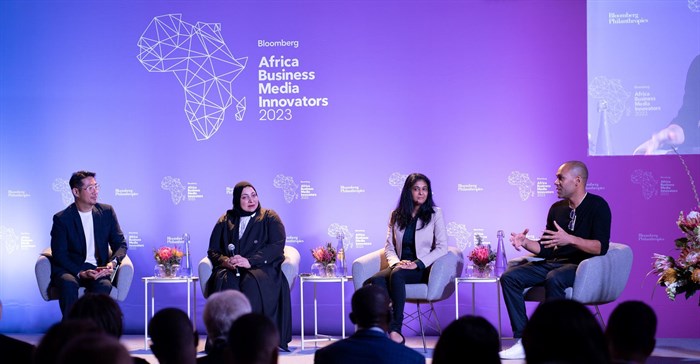
The event, which started on 30 October and ends today, has attracted 90 media leaders as it explores innovative approaches to fostering a vibrant media sector in Africa.
The annual event forms part of the Bloomberg Media Initiative Africa (BMIA), a pan-African program launched by Michael R. Bloomberg in 2014.
The initiative is designed to advance business journalism in Africa and accelerate the development of a globally competitive media and financial reporting industry as well as convene leaders to promote interactive dialogue and build strong relationships to enhance the quality of financial coverage and the availability of reliable and timely data on the continent.
Focusing on the ideas and business solutions that can contribute to the future of media and journalism in Africa, the forum has brought together a range of speakers including media owners, senior editors, business leaders, government offices, community leaders and philanthropic organisations from over 10 countries.
A range of topics from the influence of AI and digital technologies on media in Africa, to the future of work in the newsroom and the sustainability of legacy publications across the continent, are addressed.
The session Global Competitiveness and its Impact on Legacy Publications examined the global competitiveness and sustainability of legacy publications, and how legacy media companies on the continent can remain competitive as they confront digital disruptors, new technologies, as well as the increasing number of international social media companies and news organisations covering Africa.
Addressing technology and its risks, Thembisa Fakude, CEO, Mail & Guardian says while technological innovation is providing huge opportunities for African media to open its reporting to a wider audience, we must be mindful of the risks that come with this, particularly around misinformation.
“Given the pace of this technological revolution, the news industry must come together to discuss how we continue creating a vibrant and responsible news industry that informs the public while supporting economic growth right across the continent,” he says.
Addressing How Technology is Transforming the Investment Landscape by examining the investment landscape in Africa, the implications of fintech changes, infrastructure challenges, the emergence of sustainable financing, and the impact of international geopolitical volatility, Leonard Stiegeler, investor and founder, Pulse says Africa continues to have great potential for commercial investment in the digital space.
“With 70% of its population under 30 years of age and as the world's fastest-growing economic region, there are relevant opportunities for impactful fintech, greentech and other innovations originating from here.”
In the session, Portraying Africa: The Power of Media and the Arts to Re-Shape the Global Narrative the focus was on the role’s artists, composers, architects and writers in Africa and the diaspora worldwide are playing in reframing dated tropes and misconceptions about the continent, providing current, more accurate narratives that reflect the cultural and economic assets of Africa and its global artistic community.
Moky Makura, Executive Director, Africa No Filter, says, “Victoria Falls wasn’t discovered, it was there already. Likewise, African creativity and creatives have always been here.”
The difference, Makura explains, is that now, our cultural influence is being recognised globally.
“It’s the platform from which a whole new generation is experiencing Africa. The magic is in our music, film, fashion, food and art …and we need to continue to use these assets to craft fresh, compelling narratives that capture Africa’s unique offering to the world”.
In a session on media democracy, Nobel Laureate Maria Ressa, co-founder and CEO, Rappler, notes that there is no democracy without a free press.
“Journalists hold power to account. A free press is one of the most powerful tools we have to ensure we can hold those in power to account.”
The forum will discuss how to continue building a fair and transparent media ecosystem that delivers reliable news, enabling consumers and businesses alike to make better-informed decisions.
The event is co-hosted by M Scott Havens, CEO, Bloomberg Media, Matthew Winkler, editor-in-chief Emeritus, Bloomberg News, and Erana Stennett, corporate philanthropy Middle East and Africa, Bloomberg.
The programme delivers cross-disciplinary educational programmes and mid-career fellowships to increase the number of highly trained business and financial journalists, as well as support research to stimulate new media innovations.
Earlier this month, Bloomberg expanded its executive education programme in business and financial journalism, BMIA Financial Journalism Training (FJT), to Cote d’Ivoire and Senegal.
Offering the programme in French for the first time, more than 100 delegates joined the new training cohorts.
This follows the successful implementation of the programme in Ghana, Tanzania, Zambia, Nigeria, Kenya and South Africa. To date, the FJT programme has reached 800 participants from 16 countries across the Continent.